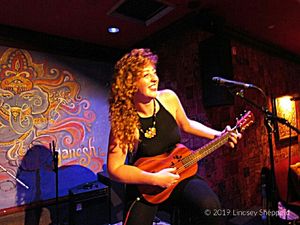A lot of people complain and argue on social media...often about politics.
What if they continued that conversation on a blog post, podcast or video?
Then at least you're turning your complaints into something productive...the potential for a future revenue stream.
If you only want to distract yourself on social media, maybe this blog isn't for you.
Every time you post content online (a single tweet is content), you're placing a tiny brick in the foundation of your brand.
I believe that everyone is their own brand whether they realize it or not.
Even if you don't have a tangible product to sell.
Your opinions and beliefs that you post online are branding you.
We’re using Facebook and Twitter to brand ourselves, but most of us aren’t strategizing our brand.
We’re helping Facebook and Twitter’s brand more than ourselves.
“If you’re not paying for it, you’re the product.”
Every time you post, you’re allowing social media platforms to keep their doors open.
They sell data and ad space.
They can't do that without consistent, loyal users.
I said in Episode #11 to take your relationships off social media as soon as possible.
The reason why is because you don’t own your social media posts or followers - the platform does.
Every pic you post of your cat or kid or event isn’t your photo anymore.
Facebook owns it.
It doesn’t mean that you shouldn’t use social media, just that social media is a tool for you to use.
It’s just one part of your overall strategy to connect with people.
Since you don’t own your social media posts and you don’t own your list of followers, you need to have a list of contact info outside of social media.
Relying ONLY on social media could lead to a bad time if your account goes down for some reason.
You can organize your opinions and monetize them one day
If you're archiving your thoughts online anyway, why not organize them beyond social media?
You may be one of these people who can talk all day...
I see a lot of long Twitter threads...
There's your outline for a blog post or for a show.
Turn on your mic and go to town for 30 minutes...then post it.
Then do it again and again and again.
It's cathartic, almost like therapy where you get relief just by getting it out of you.
It might be a long time before anyone wants to buy anything from you.
But maybe someday they will.
If you keep going, you'll find your niche.
Doing this at least gives you control over your problems rather than being a victim of them.
You can at least say you turned the negatives into a positive (you have a cool blog, show, art, etc).
Most people just complain on social media and do nothing positive with that energy.
The energy is always going to be there.
It's up to you to do something negative or positive with it.
Ranting and raving on social media is one way to use that energy...
Here's a more positive way to use that energy, which will also help distract you from your woes:
Turn those same opinions into a well thought out argument, organize it into content on your website, then promote your site and mailing list through social media.
Find your people and community who want to hear from you.
One day, your following and archive will be long enough for you to charge $ for something.
A subscription site, a book, a course, a speaking tour, services for hire...the sky's the limit.
In the peer-reviewed "How much is social media worth? Estimating the value of Facebook by paying users to stop using it," the researchers found that a Facebook user's account is worth at least $1000 a year.
If Facebook were going to pay someone to deactivate their account based on the value of the account (to Facebook), they'd need to pay the user at least $1000 a year.
That’s how much FB owes you for a year of using their site and posting on it.
That’s how much your membership is worth to them.
If you’ve used FB for the last 10 years like I have, that’s $10,000.
We’re all basically part-time employees with no paperwork.
If you’re regularly on a handful of social media sites, you’re promoting those sites for free.
The least you can do is use your accounts as a tool to develop your own voice and brand.
Those long tweet threads make a good outline for a longer piece of content.
You can then promote your content through social media and drive traffic to places you own like your website, channel, mailing list.
It gets you off someone else’s turf like Twitter and playing by your own rules.
If you don’t like to write, record a voice memo or video and go on Fiverr and get someone to transcribe it.
Then you can post the transcription as a blog post or just post the audio/video recording.
Go earn your $1000 that Facebook won't pay you.
Take care of yourself by organizing and monetizing your views.
It’ll take your mind off all the things you can’t change.
This is in your control.
Click Here to get a free exclusive 16 bars freestyle from Monikker.


 Reflecting on the new music, Jillian Kay said:
Reflecting on the new music, Jillian Kay said: